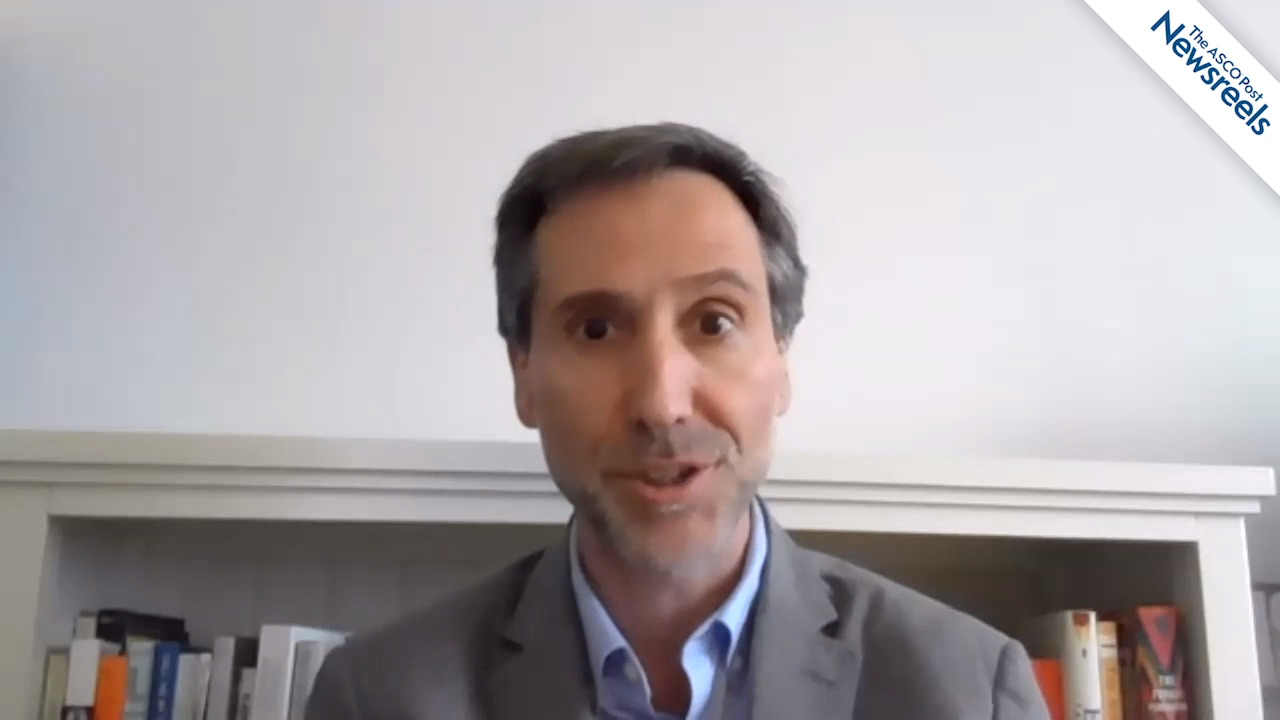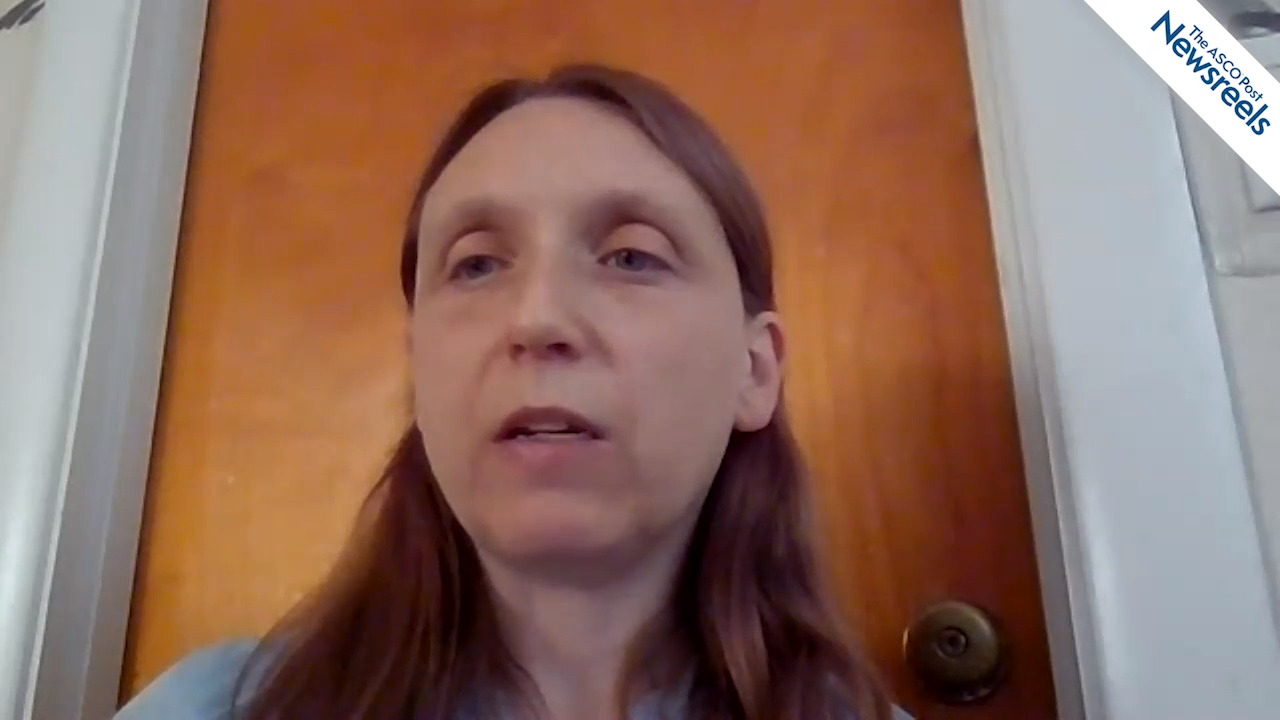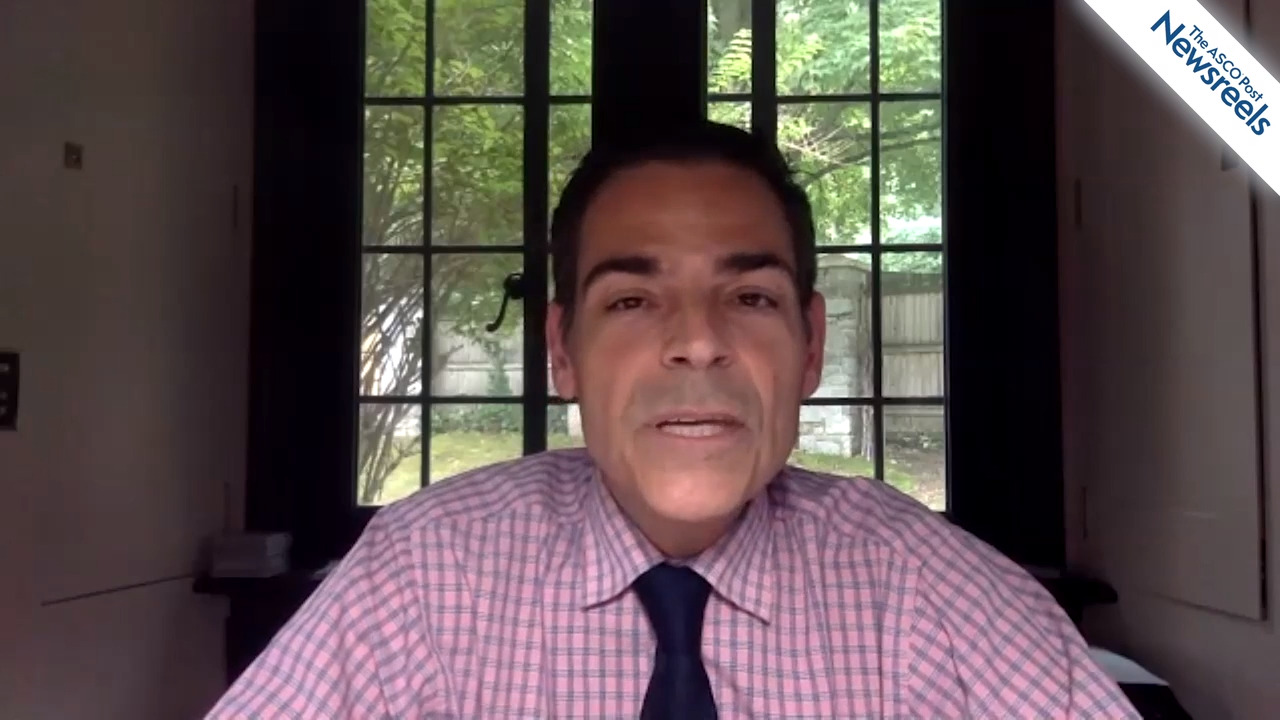Stacey A. Fedewa, PhD, on Cancers in Younger Populations: Current Trends
AACR Virtual Annual Meeting 2020 II
Stacey A. Fedewa, PhD, of the American Cancer Society, discusses the increasing incidence rates of colorectal, breast, kidney, thyroid, uterine corpus, and cervical disease in younger patients. Data show that colorectal cancer is increasing most rapidly, while breast cancer—the most common cancer among young women—is rising at a slower pace (Session ED35).
The ASCO Post Staff
Antoni Ribas, MD, PhD, of the University of California, Los Angeles, Jonsson Comprehensive Cancer Center, summarizes a special panel discussion on ways to eliminate cancer health disparities among racial and ethnic minorities. Increasing minority representation in clinical trials, thus ensuring diversity, and recognizing the accomplishments of minority scientists and clinicians in the cancer workforce are among the solutions discussed (Session VSS08).
The ASCO Post Staff
Elizabeth H. Stover, MD, PhD, of Dana-Farber Cancer Institute, discusses an analysis of genomic alterations in patients with relapsed ovarian cancer who were treated with nivolumab plus bevacizumab in a phase II clinical trial. The study was conducted to identify potential biomarkers of response (Abstract 1048).
The ASCO Post Staff
Xavier Llor, MD, PhD, of Yale University School of Medicine, discusses the steep rise of early-onset colorectal cancer over the past 15 years, which cannot be explained by genetic predisposition but may be prompted by environmental factors (Session ED35).
The ASCO Post Staff
Silvia Formenti, MD, of Weill Cornell Medical College, discusses her continuing work, and the promising results emerging, in combining radiotherapy with immunotherapy to boost abscopal response rates. This combination therapy extends the use of radiotherapy to promote antitumor T-cell responses for both local and metastatic disease (Session ED37).
The ASCO Post Staff
Adam C. Palmer, PhD, of the University of North Carolina at Chapel Hill, discusses combining immune checkpoint inhibitors with other cancer therapies to provide patients with more chances of a response. In principle, similar benefits may result from sequential or biomarker-stratified treatments, which could be valuable in cases where toxicities may prevent full-dose combinations (Abstract 1047).





